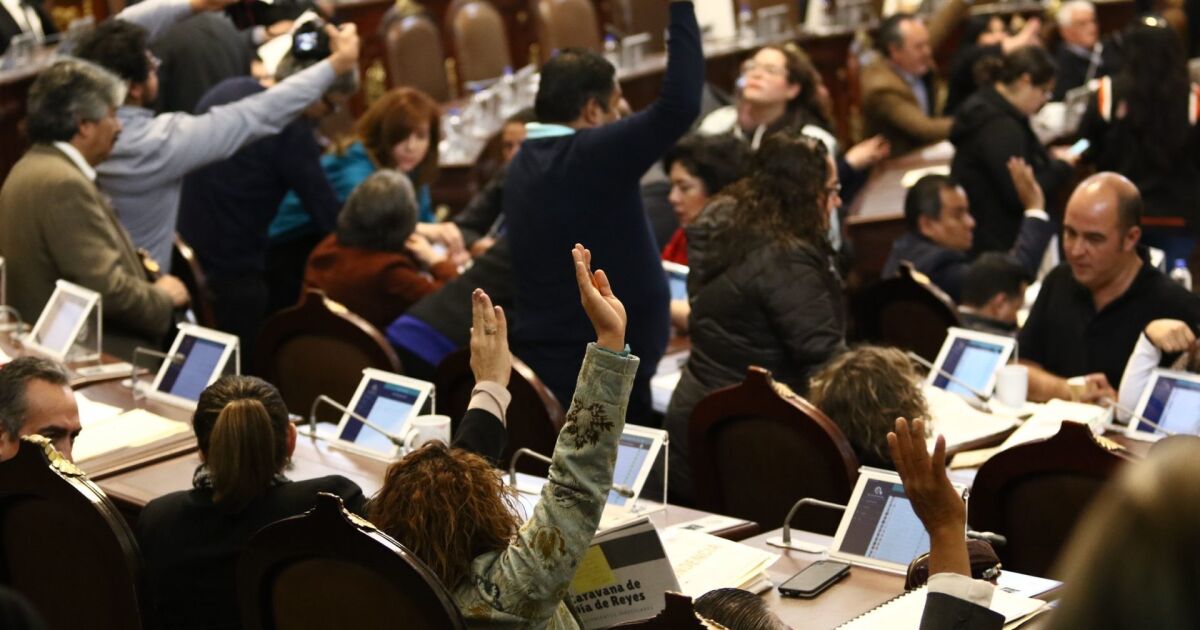Julio Téllez, director of the Parliamentary Bureau, pointed out that many legislators are beginning to leave or request leave to seek other positions, which ends up seriously affecting parliamentary institutions.
“Many of these legislators are going to try to be re-elected, they are also going to seek to campaign, either for the next head of government or even for other types of federal level positions,” he explained.
The CDMX Congress in numbers
The document obtained by Political Expansion reveals that, of the 1,216 bills presented to the Congress of Mexico City, 35 were withdrawn, nine were rejected and 1,050 are still maintained in the different commissions and committees for their ruling.
Morena, because it is the majority parliamentary group, heads the list of the number of initiatives presented to Congress and little more than 10% of them have been approved, among which the Flip Flop Law the law that creates the tourist police of the capital and the reforms that gave rise to the budget and personnel cuts in the Electoral Institute of Mexico City.
The Institutional Revolutionary Party, despite being the third on the list of presenting initiatives, is the second with the most approved initiatives.
Julio Téllez considers that the level of relief of initiatives coming from the local Executive, headed by Sheinbaum, is greater than 60%, which speaks of support mainly from the Morena party, as is the case at the federal level.
“It seems that the majority group (Morena) only wants to impose a will, carry out what is convenient for the head of government,” says Royfid Torres, the only deputy of Movimiento Ciudadano in the local Congress.
In the case of the emecista, being the only representative means being at a disadvantage among the political “encounters” that exist between Morena and the PAN, since his proposals are often not heard, hence, of the 39 initiatives he has proposed, only two have been approved.
For Luis Angel Hurtado, political scientist and professor at UNAM, the initiatives should not be measured in quantity, but in the way they can serve the citizenry. “One of the faculties of the deputies is to propose laws or modifications to the law, and for this reason they begin to generate an infinity of laws that many times – I must say so – is not necessarily the best law”, he points out.

















